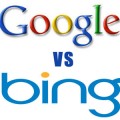In its most recent effort to improve search results, Bing has introduced its new “social search” feature. Rather than simply offering random matches spewed out by an algorithm, social search prioritizes the things that users and their friends “like,” based on the Like buttons they click on Facebook. What it means is that users from San Jose, CA, won’t have to go by way of San Jose, Costa Rica, to get localized information they want, assuming that most of their friends have clicked “Like” on local pages.
The results can be practical. People looking for the latest hockey game results will not have to wade through pages of results about aquatic killing machines or dance numbers from “West Side Story”—assuming that their friends have the same tastes as them.
There is, however, a hitch to all this. Since the search results are linked to Facebook, once it knows that someone likes a product, Bing will populate their Facebook page with new search results about it. Someone planning to surprise his wife with 12 long-stemmed roses had better not click “Like” on the florist’s shop page, or else their news feed could be flooded with more results from their search. Unless their wife is not their “friend,” the spontaneity of the surprise is lost.
Actually, Facebook itself pointed out that tracking likes and dislikes this way is an invasion of users’ privacy. On the other hand, they were talking about Google doing it, and their statements were part of a larger campaign orchestrated by Burson-Marsteller. But Google follows blogs, Twitter, and Flickr feeds, while Bing is focused on Facebook.
 Top 10 Silicon Valley Salons
Top 10 Silicon Valley Salons 
